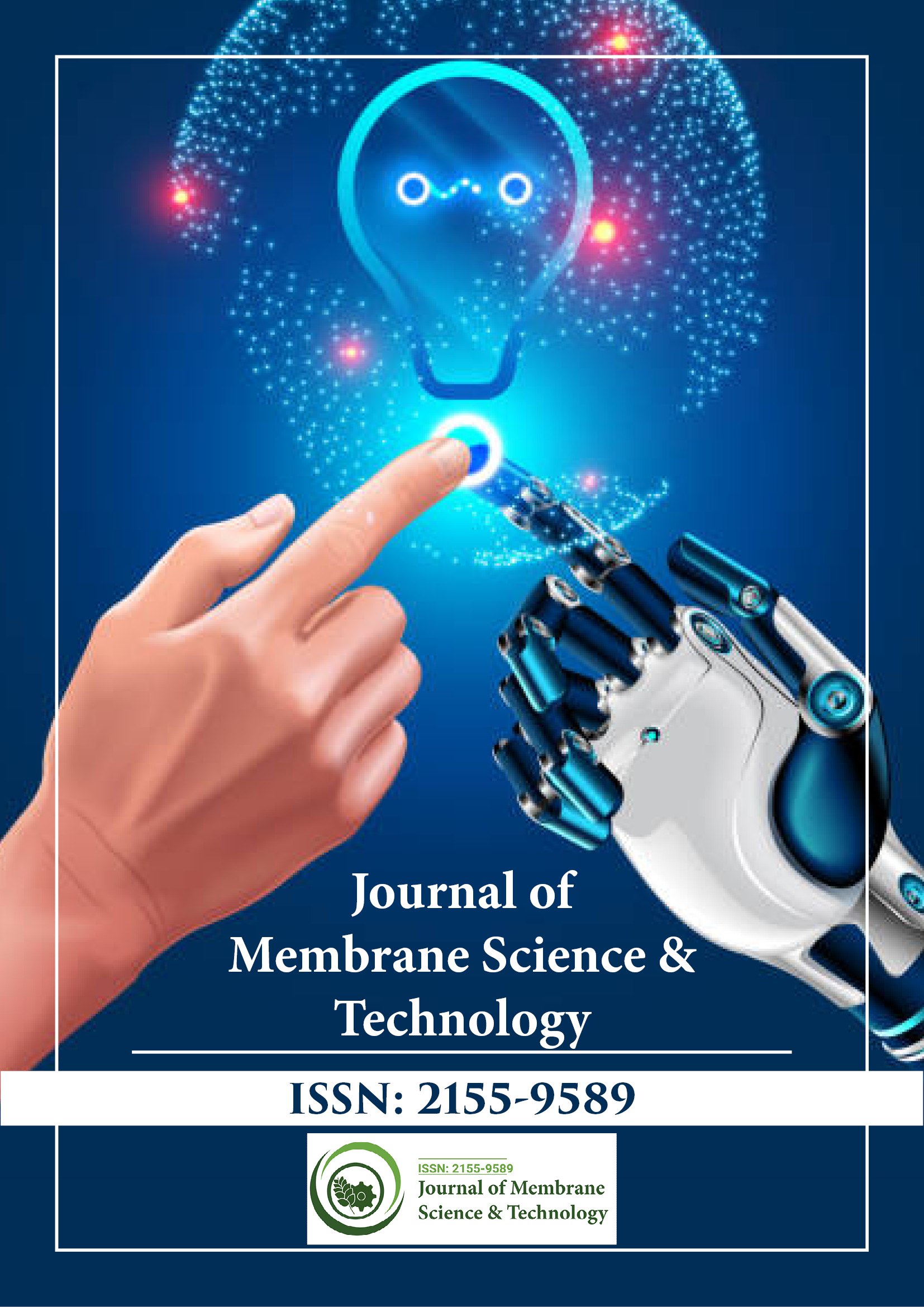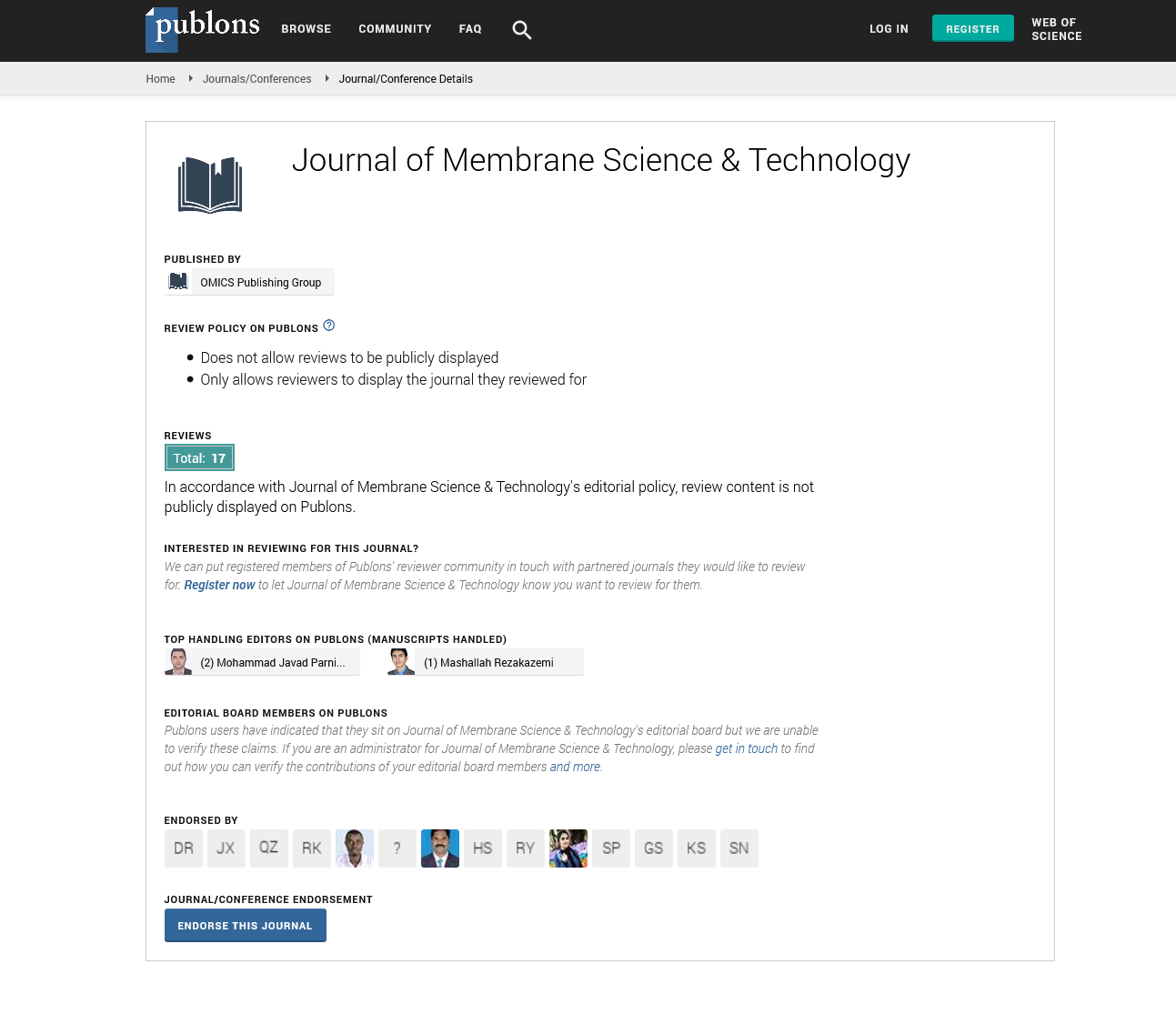Indexed In
- Open J Gate
- Genamics JournalSeek
- Ulrich's Periodicals Directory
- RefSeek
- Directory of Research Journal Indexing (DRJI)
- Hamdard University
- EBSCO A-Z
- OCLC- WorldCat
- Proquest Summons
- Scholarsteer
- Publons
- Geneva Foundation for Medical Education and Research
- Euro Pub
- Google Scholar
Useful Links
Share This Page
Journal Flyer

Open Access Journals
- Agri and Aquaculture
- Biochemistry
- Bioinformatics & Systems Biology
- Business & Management
- Chemistry
- Clinical Sciences
- Engineering
- Food & Nutrition
- General Science
- Genetics & Molecular Biology
- Immunology & Microbiology
- Medical Sciences
- Neuroscience & Psychology
- Nursing & Health Care
- Pharmaceutical Sciences
Opinion Article - (2022) Volume 12, Issue 4
Wastewater Treatment and Sewage Treatment: An Overview
Jinxing Zurina*Received: 01-Apr-2022, Manuscript No. JMST-22-16713; Editor assigned: 04-Apr-2022, Pre QC No. JMST-22-16713 (PQ); Reviewed: 19-Apr-2022, QC No. JMST-22-16713; Revised: 26-Apr-2022, Manuscript No. JMST-22-16713 (R); Published: 06-May-2022, DOI: 10.35248/2155-9589.22.12.276
About the Study
Wastewater treatment is a technique used to remove contaminants from wastewater and convert it into an effluent that can be returned to the water cycle. Once returned to the water cycle, the effluent creates an acceptable impact on the environment for various purposes are known as water reclamation. The treatment technique takes place in a wastewater treatment plant. There are different types of wastewater which are treated at the appropriate type of wastewater treatment plant. For domestic wastewater is also known as municipal wastewater, the treatment plant is called a sewage treatment plant. For industrial wastewater, treatment takes place in a sewage treatment plant usually after some form of pre-treatment. Wastewater treatment is also known as sewage treatment, the removal of impurities from wastewater or sewage, before it reaches aquifers of water including rivers, lakes, estuaries, and oceans.
Further types of wastewater treatment plants include agricultural wastewater treatment plants and leachate treatment plants. Processes commonly used in wastewater treatment include phase separation such as sedimentation, biological and chemical techniques including oxidation. The main product from wastewater treatment plants is a type of sludge which is usually treated in the same or another wastewater treatment plant. Biogas can be another product if anaerobic treatment techniques are used. Treated wastewater can be reused as reclaimed water. The main purpose of wastewater treatment is for the treated wastewater to be able to be reused safely. However, before it is treated, the options for disposal must be considered so the correct treatment technique is used on the wastewater.
Wastewater treatment plants may be distinguished by the type of wastewater to be treated. There are various techniques that can be used to treat wastewater depending on the type and extent of contamination. The treatment steps include physical, chemical and biological treatment techniques. Types of wastewater treatment plants includes: Sewage treatment plants, Industrial wastewater, Agricultural wastewater, and Leachate treatment plants.
There are three main stages of the wastewater treatment process, aptly is called as primary, secondary and tertiary water treatment. In some applications, more advanced treatment is required is known as quaternary water treatment. Four common methods to treat wastewater include physical water treatment, biological water treatment, chemical treatment, and sludge treatment. Wastewater treatment protects humans and ecosystem. It contains elements toxic to humans and the ecosystem. Wastewater treatment facilities help to purify the water and eliminate situations like what is currently seen in developing countries. There are three types of sewage: domestic sewage, industrial sewage, and storm sewage. Since pure water is not found in nature, any distinction between clean water and polluted water depends on the type and concentration of impurities found in the water as well as on its intended use. In broad terms, water is said to be polluted when it contains enough impurities to make it unfit for a particular use, such as drinking, and swimming. Although water quality is affected by natural conditions, the word pollution usually implies human activity as the source of contamination. Water pollution, therefore, it is caused primarily by the drainage of contaminated wastewater into surface water or groundwater, and wastewater treatment is a major element of water pollution control.
Citation: Zurina J (2022) Wastewater Treatment and Sewage Treatment: An Overview. J Membr Sci Techno. 12:276.
Copyright: © 2022 Zurina J. This is an open access article distributed under the terms of the Creative Commons Attribution License, which permits unrestricted use, distribution, and reproduction in any medium, provided the original author and source are credited.

